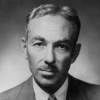E. B. White

E. B. White
Elwyn Brooks "E. B." White was an American writer. He was a contributor to The New Yorker magazine and a co-author of the English language style guide The Elements of Style, which is commonly known as "Strunk & White". He also wrote books for children, including Stuart Little, Charlotte's Web, and The Trumpet of the Swan. Charlotte's Web was voted the top children's novel in a 2012 survey of School Library Journal readers, an accomplishment repeated in earlier surveys...
NationalityAmerican
ProfessionWriter
Date of Birth11 July 1899
CountryUnited States of America
The mind travels faster than the pen; consequently, writing becomes a question of learning to make occasional wing shots, bringing down the bird of thought as it flashes by. A writer is a gunner, sometimes waiting in the blind for something to come in, sometimes roaming the countryside hoping to scare something up.
Shocking writing is like murder: the questions the jury must decide are the questions of motive and intent.
The main thing I try to do is write as clearly as I can. I rewrite a good deal to make it clear.
I have yet to see a piece of writing, political or non-political, that does not have a slant. All writing slants the way a writer leans, and no man is born perpendicular.
When a man hangs from a tree it doesn't spell justice unless he helped write the law that hanged him.
My prose style at this time was a stomach-twisting blend of the Bible, Carl Sandburg, H.L. Mencken, Jeffrey Farnol, Christopher Morley, Samuel Pepys, and Franklin Pierce Adams imitating Samuel Pepys. I was quite apt to throw in a "bless the mark" at any spot, and to begin a sentence with "Lord" comma.
I have no warm up exercises, other than to take an occasional drink.
In dialogue, make sure that your attributives do not awkwardly interrupt a spoken sentence. Place them where the breath would come naturally in speech-that is, where the speaker would pause for emphasis, or take a breath. The best test for locating an attributive is to speak the sentence aloud.
I have always felt that the first duty of a writer was to ascend - to make flights, carrying others along if you can manage it. To do this takes courage, even a certain conceit.
The main thing I try to do is write as clearly as I can. Because I have the greatest respect for the reader, and if he's going to the trouble of reading what I've written -- I'm a slow reader myself and I guess most people are -- why, the least I can do is make it as easy as possible for him to find out what I'm trying to say, trying to get at. I rewrite a good deal to make it clear.
A man who publishes his letters becomes a nudist - nothing shields him from the world's gaze except his bare skin. A writer, writing away, can always fix things up to make himself more presentable, but a man who has written a letter is stuck with it for all time.
All we need is a meteorologist who has once been soaked to the skin without ill effect. No one can write knowingly of the weather who walks bent over on wet days.
Templeton was down there now, rummaging around. When he returned to the barn, he carried in his mouth an advertisement he had torn from a crumpled magazine. How's this?" he asked, showing the ad to Charlotte. It says 'Crunchy.' 'Crunchy' would be a good word to write in your web." Just the wrong idea," replied Charlotte. "Couldn't be worse. We don't want Zuckerman to think Wilbur is crunchy. He might start thinking about crisp, crunchy bacon and tasty ham. That would put ideas into his head. We must advertise Wilbur's noble qualities, not his tastiness.
A writer is like a bean plant - he has his little day, and then gets stringy.